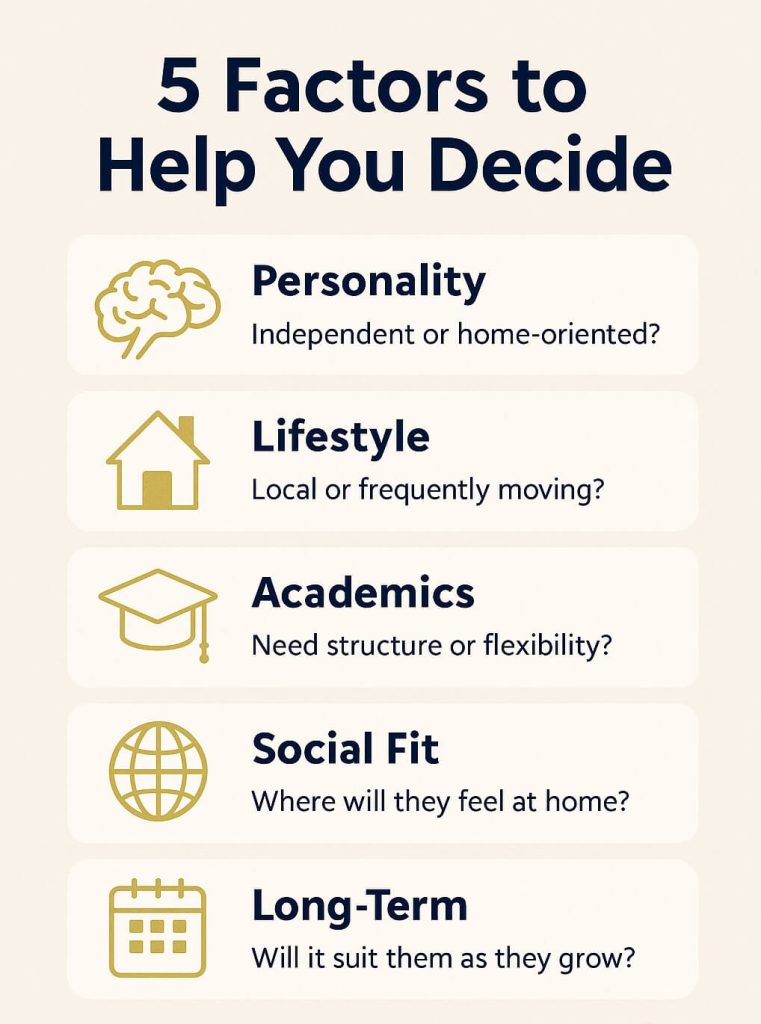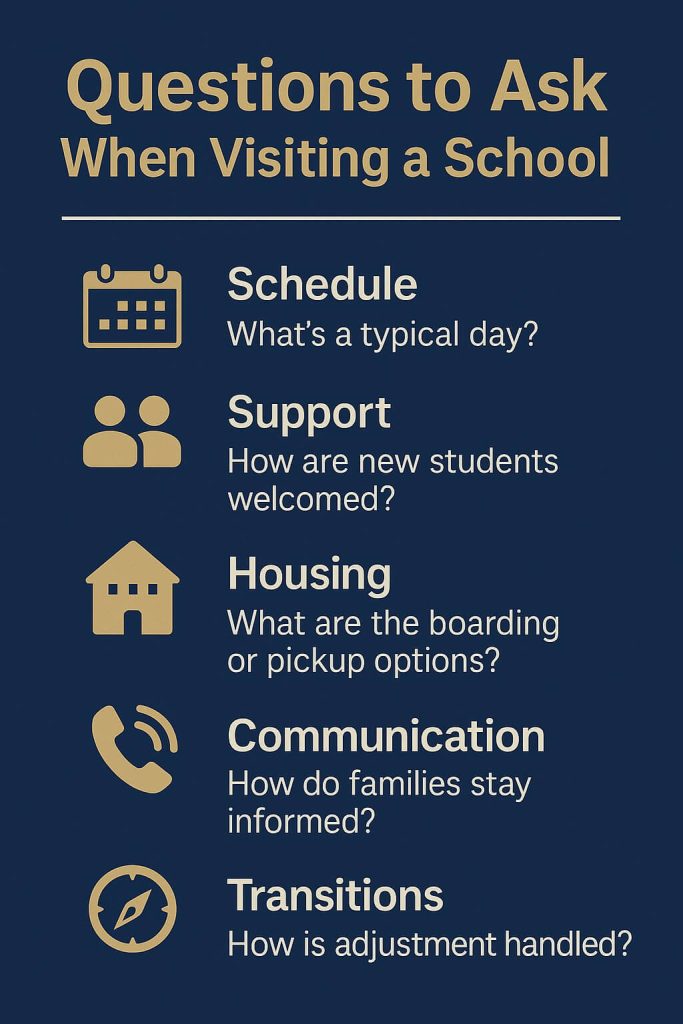Choosing the right type of school is rarely a simple decision, especially for internationally minded families. With options ranging from local day schools to prestigious boarding institutions, the choice can feel overwhelming. Each model offers unique benefits and potential trade-offs that go far beyond the classroom.
Our resource here explores the key differences between day and boarding schools, helping you weigh what matters most for your child and family. Whether you’re seeking stability, structure, independence, or a deeper connection to home, understanding how each option aligns with your values can make all the difference.
Understanding the Basics
What Is a Day School?
Day schools operate during regular school hours, with students returning home each afternoon. These schools may follow a local or international curriculum, and they typically involve strong parental engagement through drop-offs, events, and ongoing communication. For families living nearby and wanting daily interaction, day schools provide a sense of routine and accessibility.
What Is a Boarding School?
Boarding schools offer a fully residential experience, where students live on campus during term time. They provide not only academic instruction but also meals, supervision, co-curricular activities, and pastoral care. Boarding can be full-time or weekly, depending on the school and region. This model fosters independence and often suits families who travel frequently or live far from preferred schooling options.
Key Factors to Consider
Your Child’s Personality and Independence
Some children thrive in highly structured environments, while others benefit more from the daily support of home life. If your child shows signs of independence, adaptability, and emotional resilience, they may be ready for a boarding environment. For younger children or those who need more hands-on guidance, a day school can provide the familiarity and routine they need to grow with confidence.

Family Lifestyle and Location
Frequent relocation, demanding work schedules, or living in areas without strong local school options may steer families toward boarding. In contrast, if you’re settled in a city with access to good day schools and value daily family interaction, staying local may be the more natural fit. Consider how your routine, travel plans, and long-term location goals align with the school format you choose.
Pros and Cons of Day Schools
Day schools are often preferred by families who prioritise close involvement in their child’s daily life. They allow for a consistent home environment, shared routines, and easy access to extracurricular activities outside of school. Parents can stay closely connected to their child’s progress and emotional wellbeing, which is especially valuable in the early years.
However, day schools may not suit every situation. Commuting logistics, limited after-school supervision, or lack of specialised programmes can pose challenges, particularly for families with busy schedules or those living far from quality options. While tuition may be lower than boarding, added transport or childcare costs can still factor into the overall decision.
Pros and Cons of Boarding Schools
Boarding schools provide a highly structured environment where academic learning, extracurricular activities, and pastoral care are fully integrated. Students benefit from constant access to facilities, peer support, and experienced staff, all within a self-contained community. For older children, this can build independence, resilience, and strong time management skills.
That said, boarding isn’t for everyone. Younger students or those who find separation from home difficult may struggle to adjust. Costs are typically higher, and families must be comfortable with reduced daily involvement. Before committing, it’s worth asking how the school supports emotional wellbeing and how often students can return home during term breaks.
Tips for Making the Right Decision
Before choosing a school, try to visit in person or attend a virtual tour. Ask detailed questions about the daily schedule, student support, and the school’s approach to communication with families. Understanding how the school handles transition periods or homesickness can be especially helpful.
Involve your child in the decision-making process if they’re old enough. Their preferences, concerns, and readiness for independence should be part of the conversation. You may also benefit from speaking with other families who have experienced both settings, real-life insights can often highlight practical details that aren’t in the brochure.

Finding the Right Fit for Your Family
There’s no one-size-fits-all answer when it comes to choosing between a day or boarding school. The right path depends on your child’s personality, your family’s routine, and what kind of environment will help your child thrive both academically and emotionally.
Take time to explore your options, ask questions, and reflect on your long-term goals as a family. Whether you’re drawn to the structure of boarding or the balance of daily family life through day school, what matters most is finding a school that aligns with your values and supports your child’s journey. For curated family resources, and expert insights, explore what AISL Mall has to offer.








